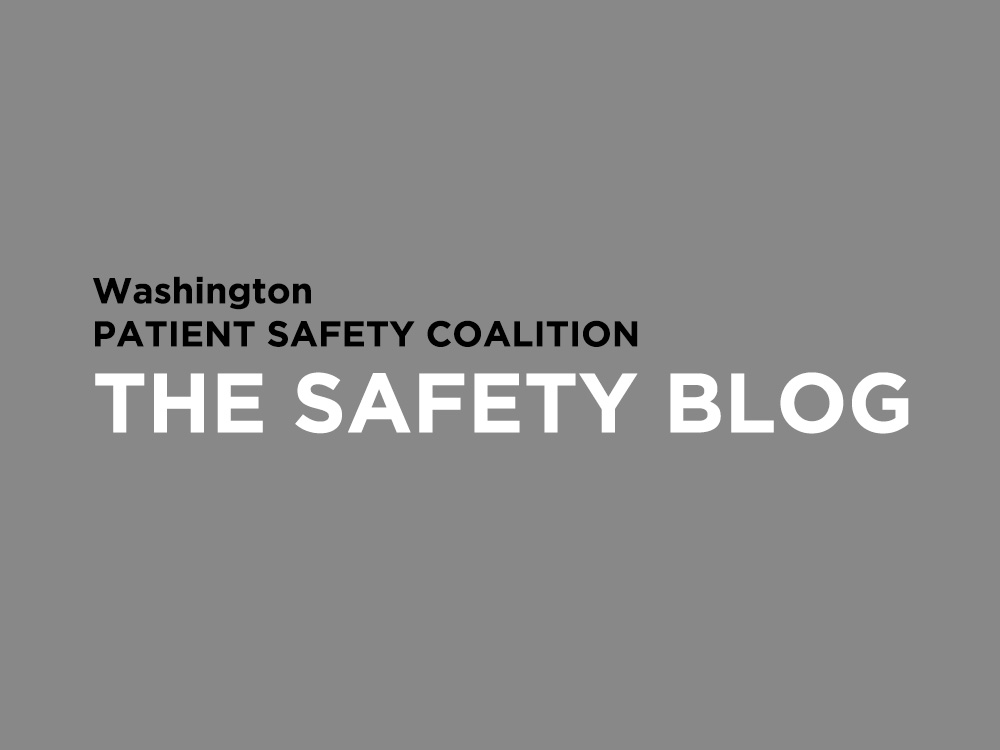- FHCQ Foundation for Health Care Quality
- COAP Care Outcomes Assessment Program
- Spine COAP Care Outcomes Assessment Program
- SCOAP Care Outcomes Assessment Program
- OBCOAP Care Outcomes Assessment Program
- CBDR
- Smooth Transitions
- WPSC Patient Safety Coalition
- Bree Collaborative Bree Collaborative
- Health Equity Health Equity
- Admin Simp
- Contact Us
On being a passenger on the way to the NPSF Congress

On being a passenger on the way to the NPSF Congress
 Welcome to the inaugural blog of the Washington Patient Safety Coalition! We welcome your comments and suggestions for topics.
Welcome to the inaugural blog of the Washington Patient Safety Coalition! We welcome your comments and suggestions for topics.
In May I had the opportunity to attend the National Patient Safety Foundation Congress for the first time. I’ll share my two major impressions, one of which is directly related to the event’s content and the other to the process of travelling to Orlando.
First, regarding content: my overall impression is that we in Washington are far ahead of the rest of the country. It doesn’t mean that we are perfect or that we are effectively addressing all patient safety issues; rather, over and over I heard activities, partnerships, and interventions described as “innovative!” and “new!” that many in our state have been engaged in for years. Washington’s unusual is that we have a very long history of collaborative work among partners in quality and safety, in combinations and effectiveness not seen elsewhere. This realization was both reassuring and distressing.
Second, I flew to Orlando on my airline of choice, Alaska Air. It’s literally been years since I’ve been on another airline. Once we were all boarded at SeaTac, the pilot announced that we might even leave 15 minutes early (woo-hoo!), so I settled into my book and lost track of time…until he announced that we “may have noticed” that we were still at the gate. Well, I hadn’t noticed that about 30 minutes had passed (it was a good book: The Girl with the Dragon Tattoo – no, nothing patient safety-related). He gave some explanation along the lines of “A warning light is going off related to [something that sounded really important to me] and this light is in both the main system and the backup systems. Don’t worry, the mechanics are on board working on it. We’ll keep you posted.” My immediate thought: “What was that recent legislation limiting how many hours passengers can be kept on the tarmac–was it four or five? I’ll worry about it if it doesn’t get fixed soon.” I returned to my book.
About 15 minutes later: “The mechanics are still working hard on it…they haven’t figured it out yet…they have their manuals…” Then I started getting worried: At what point would the pressure to depart (keeping on time, avoiding mass unhappiness of the passengers, make sure the crew didn’t go over their work-hour limits) overwhelm the responsibility to do the fix, of whatever it was, correctly? How would the mechanics know that the problem was really fixed? What were they experiencing? Were they all well-trained and rested? Were they at the beginning or end of their shifts? Did they have the tools and information they needed? Were they getting any pressure—either implicit or explicit—to get things done “well enough” to leave close to on-time? (Does this remind you of concerns that might arise with starting that OR case on time, discharging a patient to a SNF, waiting for an interpreter so that the plan of care can be discussed or a consent obtained, or maybe even washing one’s hands?) And what exactly was the problem that to me, being completely ignorant of airplane stuff, sounded very important? Maybe it only sounded critical, and only to me. When I’m on the plane, everything that’s ‘wrong’ sounds equally important to me. Was it the equivalent of a broken brake-light on a car? Yes, it should be fixed, but isn’t going to keep my brakes from working well. Could the pilot have conveyed the information and updates in a better way to the passengers?
Short-term outcome: Whatever the problem was, it was fixed to the satisfaction of somebody – the mechanics? The pilots? Who decided? Was it “good enough” or was it perfect? What was the definition of “fixed”? We took off, flew, and landed safely, about an hour late.
What I learned relative to patient safety: (1) People who work in our field know too much to be flying around alert and unsedated. (2) We need to be extra-mindful of the pressures on providers. (3) What and how we tell patients and their families is so very important. What if the pilot had said something like this: “There is a problem with System X, which does Y [decorative, important, very important, critical!] function on this plane. We have two well-rested and highly-experienced mechanics on board working on it. If they have any questions, they have other resources they can, and will, contact. They will not allow us to leave until both we and they are satisfied it is safe to do so, no matter how long it takes and no matter how anxious we might all be to get to our destination. This is understood up and down the Alaska chain of command. If you have any questions about this, just put on your call light.”
I would have felt much better.
Thoughts? Share with me here. Miriam Marcus-Smith, Program Director, WPSC
Recent Posts
- TakeCharge This Patient Safety Awareness Week: 5 Steps to Safer Healthcare
- Stigma & Bias in Healthcare: The Obstacles, Consequences and Changes Needed
- Agility in Crisis: How The Everett Clinic responded to COVID-19
- Collaboration over Competition: How Pediatric Hospitals Can Thrive When They Work Together
- Reducing Stress for Health Professionals During the COVID-19 Pandemic

